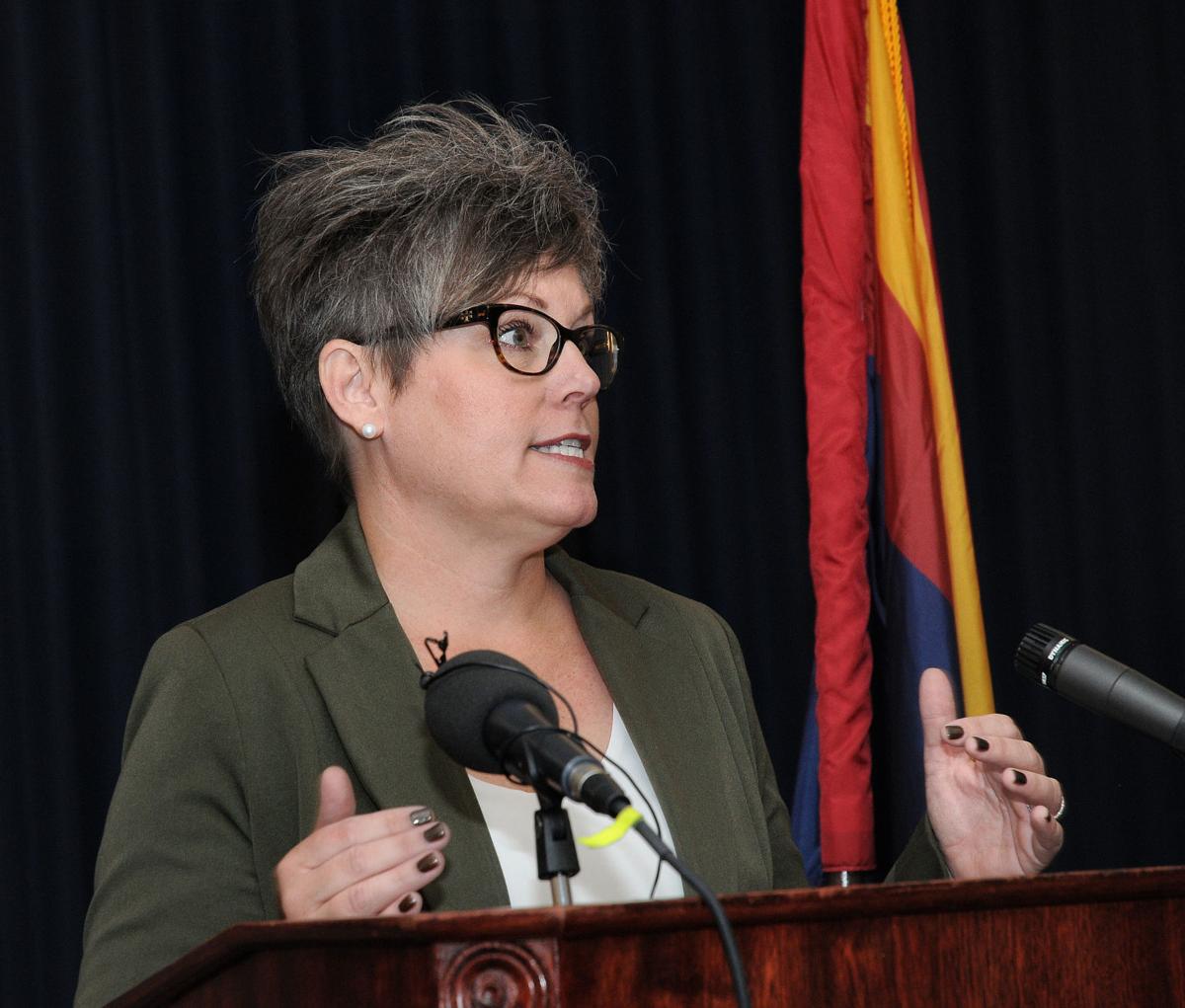PHOENIX — Incoming Secretary of State Katie Hobbs said Monday that political parties should be required to report when they spend money to elect specific candidates, even as she defended the failure of the Arizona Democratic Party to disclose its spending to get her elected.
“I’m prepared to support any laws that increase transparency in campaign finance,” Hobbs said in her first news conference since Republican Steve Gaynor conceded late Friday that she had won.
But those laws, which generally require individuals and groups to detail how they are spending their cash, have a major loophole: Political parties need list only that they spent their money, with no specifics on which candidates were helped.
In fact, the only way to determine how much a political party is spending is to go through the detailed reports that each television station files with the Federal Communications Commission each time a party buys air time. And that only covers TV and radio, not newspaper ads or mailers.
As it turns out, the Arizona Democratic Party has since acknowledged spending $3.3 million to get Hobbs elected. That outstrips the more than $2.3 million Gaynor put of his own cash into the race, spending he was required to disclose in reports filed with the Secretary of State’s Office.
But the only reports filed by Hobbs and supporters with that office — and the only ones legally required — show $818,824 in expenses by her campaign, plus another $170,000 spent on her behalf by other groups.
Hobbs denied there was anything wrong in requiring people to search out FCC records to find out the true extent of the money spent to get her elected.
“We followed the law and played the game by the rules that are in place,” she said.
Aside from supporting greater disclosure of spending by political parties, Hobbs detailed a few other ideas she has once she takes office — assuming the Republican-controlled Legislature and Republican Gov. Doug Ducey go along.
One has to do with “emergency voting centers” set up on the weekend before Election Day.
Arizona law has allowed these for years, and many counties have used them.
But that did not stop Jonathan Lines, chairman of the Arizona Republican Party, from blasting Maricopa County Recorder Adrian Fontes for establishing five voting centers open on the Saturday and Monday before Election Day.
Part of the issue was Lines’ contention that the voting centers were in largely Democratic areas.
But Lines claimed that Arizona law requires all in-person voting to be done no later than the Friday before the election. He also complained there was no actual “emergency” that required the voting centers.
Hobbs, however, said she’s a fan of such voting centers, saying she favors “any policy that’s going to increase voter participation, which is really what these emergency voting centers are about.” She acknowledged there may be a need for legislation to ensure that all counties operate by the same rules.
But Hobbs was unwilling to say there should be a tighter definition of what constitutes an “emergency.”
“Who gets to decide what’s an emergency?” she asked. The simplest thing, said Hobbs, is to allow people to vote in person for the entire weekend before the election — emergency or not.
“There’s really no reason we can’t do that,” she said.
Hobbs also took issue with a legal bid by the GOP to block Pima and Maricopa counties from verifying the signatures on early ballot envelopes after the polls closed at 7 p.m. on Nov. 6. The lawsuit was settled, not by stopping those two counties from matching signatures on envelopes with those on file, but by ensuring there was a similar process at work in all 15 counties.
The issue is crucial because early ballots received by mail or turned in at polling places can be counted only if signatures match. Hobbs said trying to stop the process at 7 p.m. on Election Day makes no sense.
“If we’re going to allow ballots to be turned in on Election Day, we can’t stop matching signatures just because there’s that deadline,” she said. “I mean, we have to make sure that those votes count.”





